
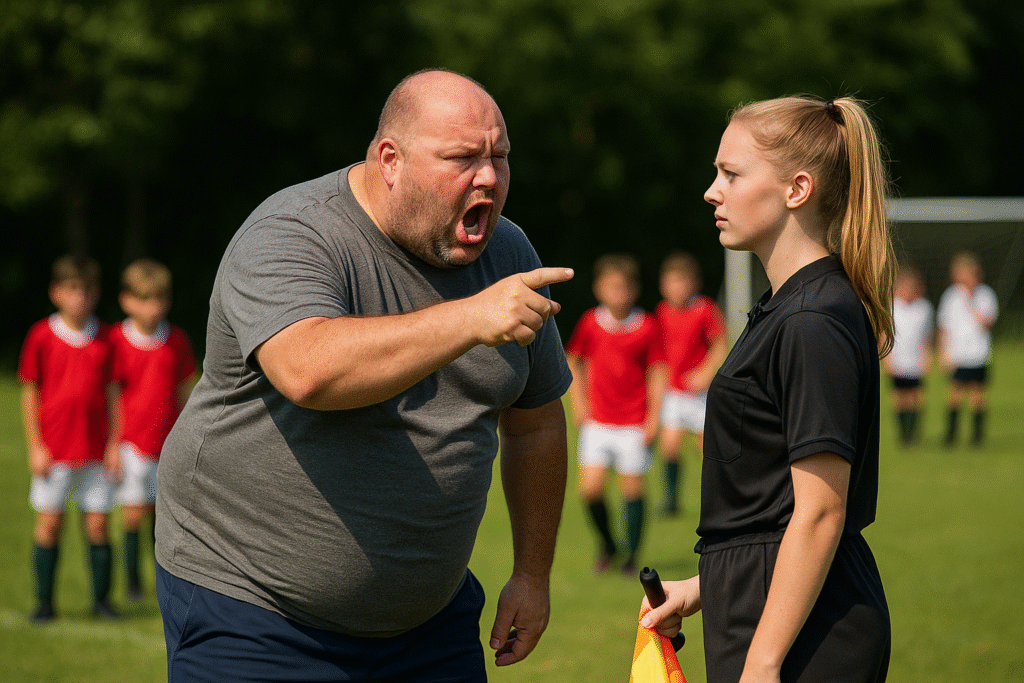
why does passion turn into aggression... and what can be done ABOUT IT?
By Club Legends’ Digital Content Creator, Social Media man, AI Specialist and Chief Sports Writer – Tony Clark
To borrow the words of Nuno Espírito Santo – after Nottingham Forest’s owner waddled onto the pitch to berate him for the apparent crime of qualifying for Europe – “Football is emotions.”
And indeed, it always has been. From roared terrace chants to players squaring up in the 90th minute, emotion is baked into the sport. Passion is what gives football its magic – and sometimes, its madness.
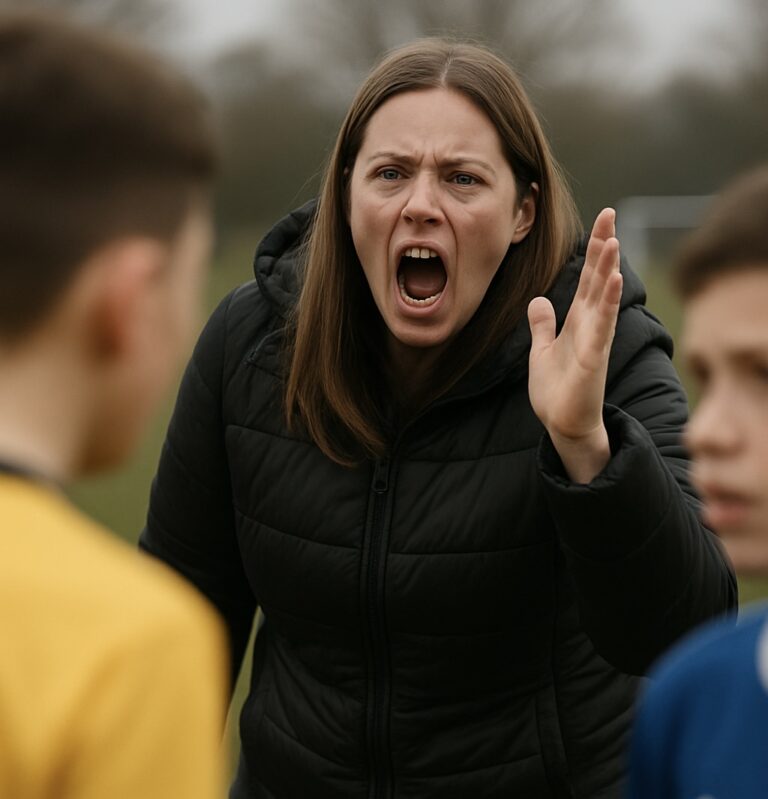
There’s a point where that passion curdles and turns into smelly, hot, angry milk (with needlessly emotional lumps in it). It’s one thing to lose your cool when your team concedes in the dying seconds at Anfield… It’s another entirely to have a rage-fuelled meltdown at a Sunday morning under-8s match.
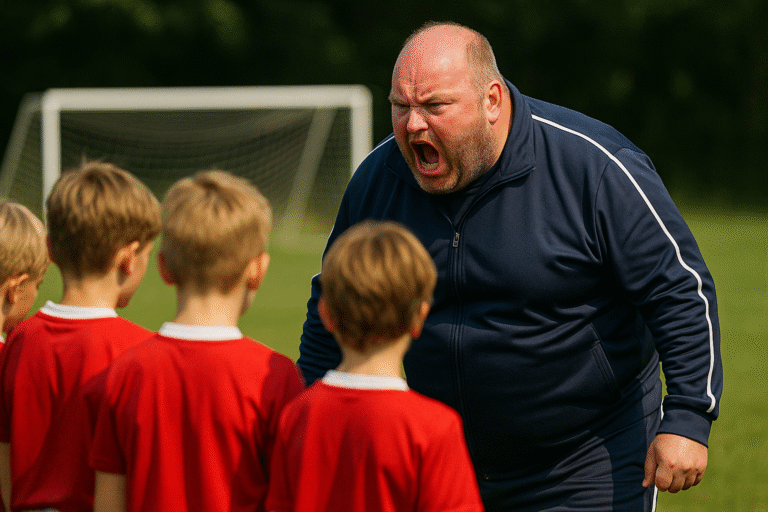
We’ve all seen it. The massive, rampaging dad screaming at a tiny teenage ref. The coach having a full-blown meltdown because a seven-year-old didn’t track back. The mum convinced the opposition’s toddlers are nothing short of degenerate, cheating scum.
Sometimes it’s ridiculous. Sometimes it’s dangerous. But every time, it’s the kids who suffer.
So why does this happen? IS it getting worse? And what can actually be done about it? We asked people across grassroots football to share their stories—and, as always, they delivered.*
*But we did edit down their words into easier soundbites.



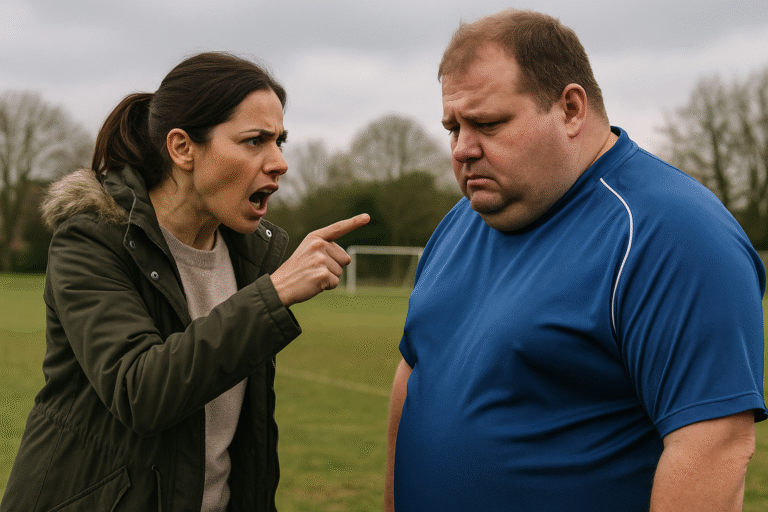
But it’s not just football. Sports psychologists warn that unrealistic expectations and aggressive behaviour across youth sports can hurt kids’ self-esteem, cause anxiety, and promote the wrong values.
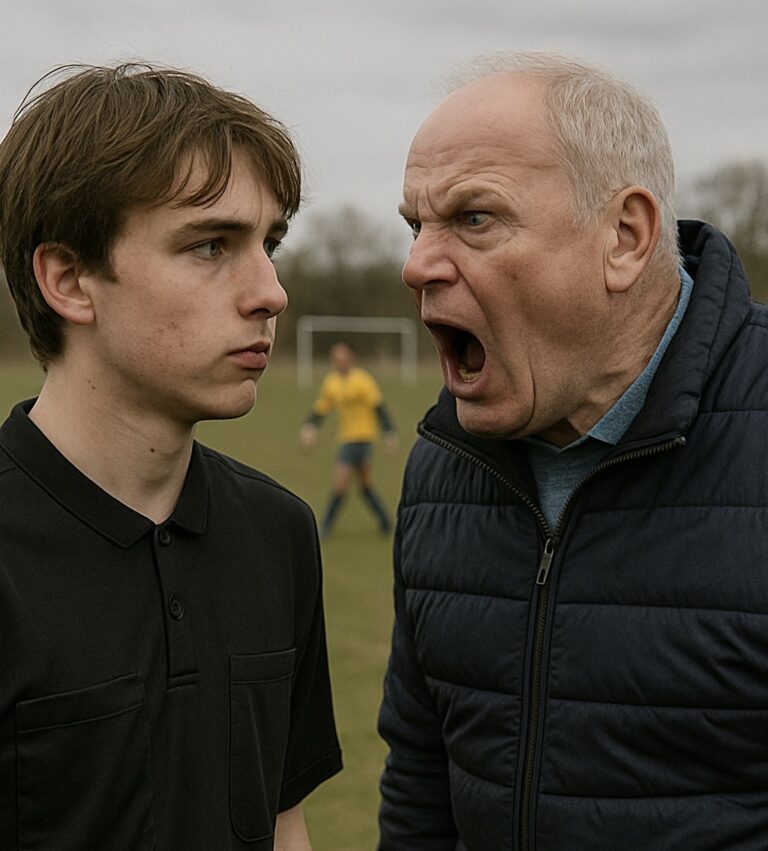
Unfortunately, these aren’t isolated incidents.
Across the UK, referees consistently say parents are the biggest problem in grassroots football. The Somerset FA reported a 50% rise in disciplinary cases last season, many involving verbal or physical abuse of young refs.
This behaviour is driving kids – and officials – out of the game.
That’s why the FA launched its celebrated Respect campaign back in 2008. The idea was simple: make football safer and more enjoyable for everyone. It wasn’t just about punishing bad behaviour, but shifting the culture through education, clear codes of conduct, and some iconic messaging—like Ray Winstone’s famous “Respect” PSA.
The campaign’s message has been reinforced by research:
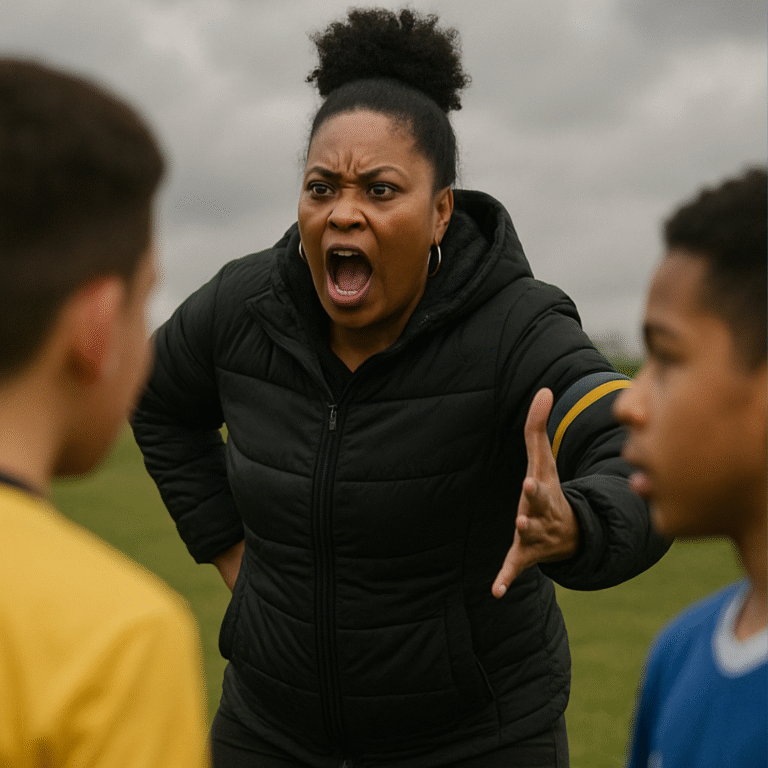
The easy answer is to blame “football culture.” But that’s too simplistic.
This isn’t about class, postcode, status or even gender. From leafy suburbs to inner-city estates, emotion and rage don’t discriminate. When common sense flees the scene and adults forget it’s just a kids’ game – and that the players are, in fact, children – things can quickly spiral.
As one referee told us:
“It’s the few that spoil it for the many.”
The FA’s Respect campaign is still the right direction – but it only works if everyone signs up.
Clubs now have welfare officers, reporting pathways, and codes of conduct. Silent Support Weekends are growing – nearly 900,000 kids took part last year. But ultimately, the solution isn’t another poster campaign. It starts with us.
If you’re a parent or coach, the job is simple:
Support your kids. Be a presence, not a problem.
And if you feel yourself getting too worked up… maybe stay in the car. Or better yet, stay home.
What’s behind all this touchline tension — and more importantly, what can be done to fix it? Have you ever lost your cool at a kids’ match… and caught yourself just in time?
⚠️ Be honest. No judgment here. (Unless there’s a crime involved)
👇 Join the conversation on our socials — we want to hear your stories, your solutions, and maybe even your sideline confessions.
LET US KNOW ON OUR SOCIALS👇